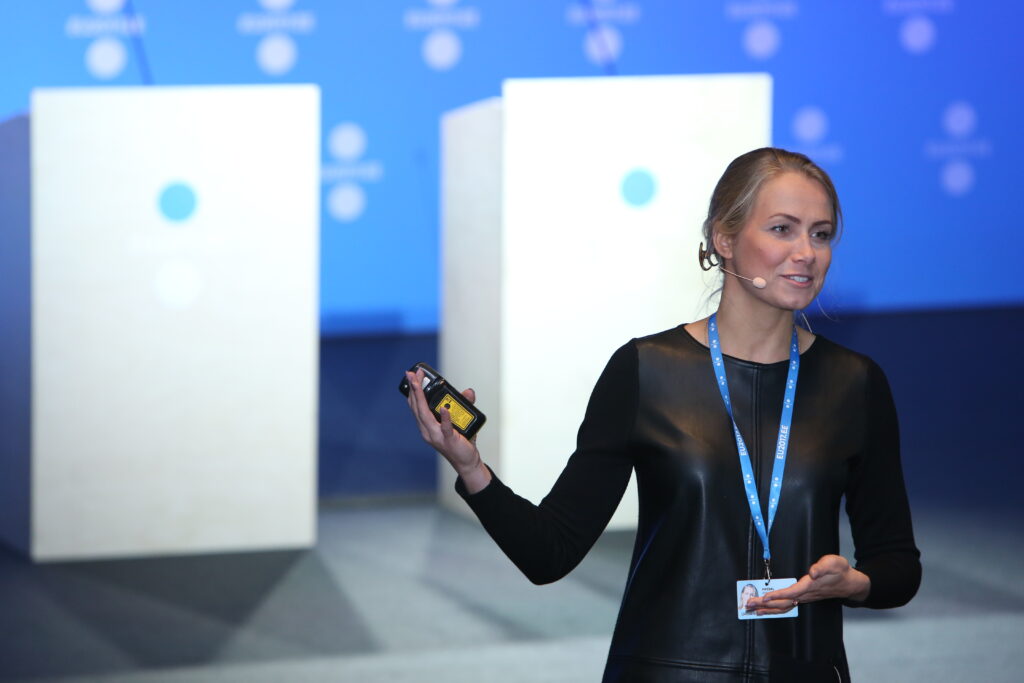Justin Petrone interviews Anna Piperal, a manager at the e-Estonia Briefing Centre, who cultivate the national resource into a showroom for the country’s digital society.
Anna Piperal has seen the whole story unfold. She joined the e-Estonia Briefing Centre as a marketing manager a decade ago, when it was just a fledgling demo hub founded by half a dozen homegrown firms. Later, Piperal became a manager, a position she still holds, cultivating the national resource into a showroom for the country’s digital society. She has hosted ambassadors, presidents, princesses and the cream of the global business elite along the way.
Piperal gave a talk about Estonian e-governance, an area where she has a special degree of experience and expertise, at a TEDSummit in Edinburgh in 2019.
Today, the centre has transformed again, reacting to the COVID-19 pandemic to offer new online events and programmes. Yet, the centre’s mission has remained since it opened its doors: to showcase Estonia’s success and provide others with the tools and connections to build their own digital societies. And not only, Piperal stresses. It also requires a transformed mindset and long-term national consensus to make things happen, changes the centre is keen to promote.
A reserved people
According to Piperal, the catalyst for opening the briefing centre – called the Estonian ICT Demo Centre at its founding in 2009 – came in part from the Estonians’ inherent modesty. While firms had managed significant achievements in crafting innovative digital solutions for both the private and public sectors, they found it harder to talk up their products.
“The Estonians, as you know, can be reserved people,” Piperal says. “What they didn’t know how to do so well at that time is how to market themselves and how to sell things. Even if something is outstanding, Estonians will also be the first to criticise themselves, and it’s only when they leave Estonia and travel the world do they appreciate everything they have.”
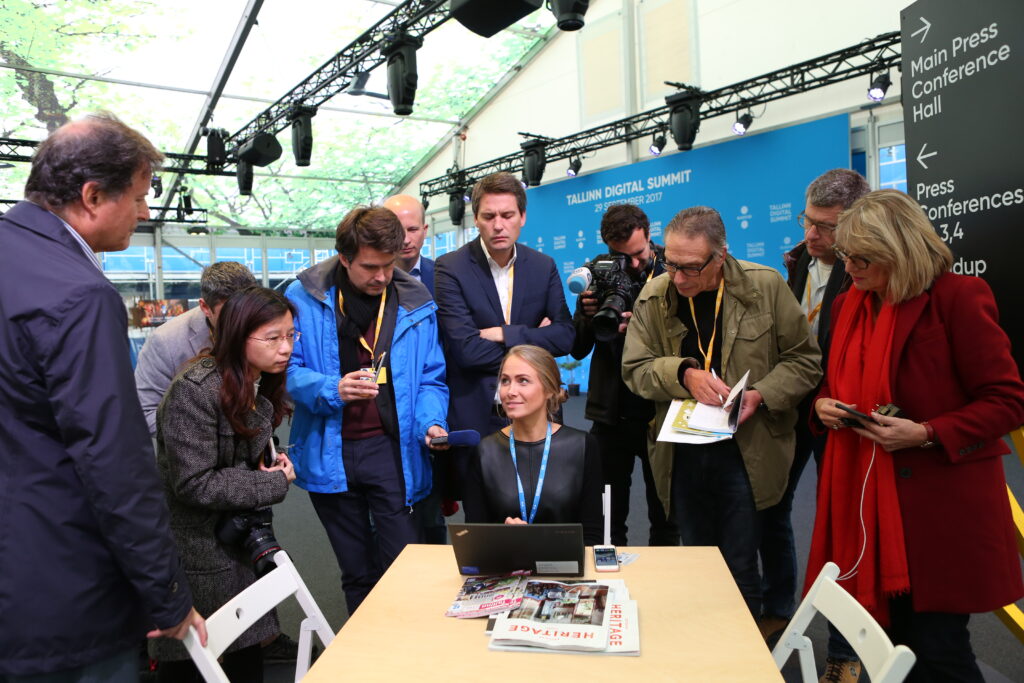
There was also the issue that many people knew little to nothing about Estonia and often just saw it as just another grey Eastern Bloc country, even decades after the demise of the Soviet Union. It was an issue ICT firms encountered time and time again when they approached potential new clients.
“Nobody knew what Estonia was, or if they did, they knew it as a post-Soviet country,” she says. “That image stuck around for a long time.”
“Like Nike”
Therefore, the centre’s idea became to showcase what Estonia had built and develop and promote a new image of the country.
“Like Nike created a healthy, sporty lifestyle, which allowed them to sell more shoes, we became the organisation to represent the needs of ICT firms,” Piperal says. Raising awareness of e-Estonia – a catchall term that encompasses the ecosystem of the country’s digital solutions and services – also served to rebrand the nation.
“Basically, we started to build the brand of e-Estonia,” she says. “We actively did everything to make the brand of the country as a developed digital society better and known internationally, and this created a great basis for IT companies to sell and export their products and services.”
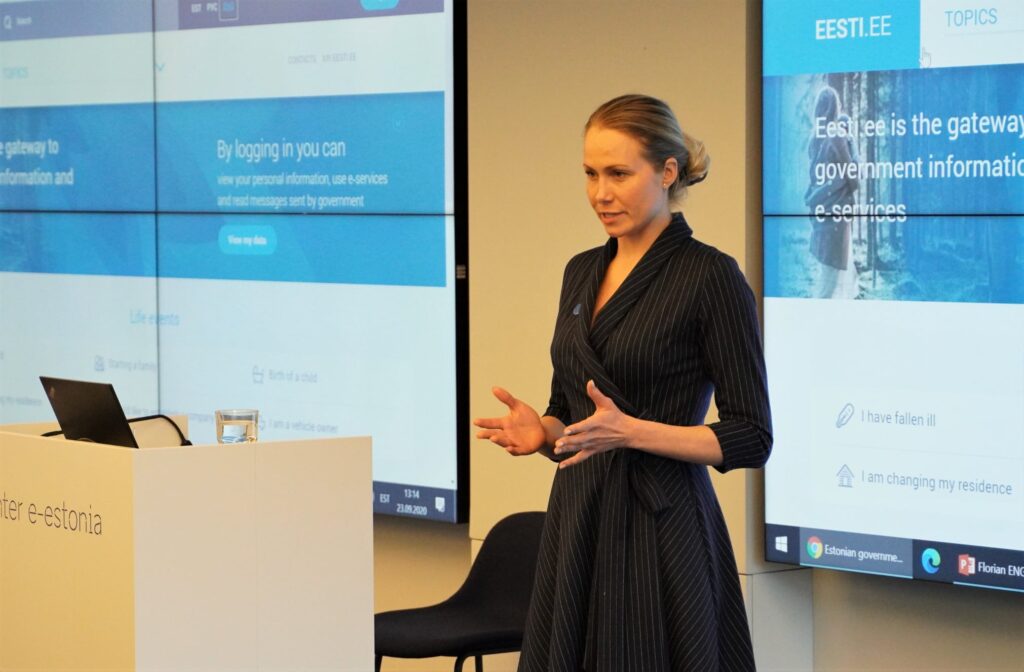
Swan Lake
During Piperal’s tenure as a marketing manager, the ICT Demo Centre was rechristened the e-Estonia Showroom. It became the first stop for many visiting dignitaries before being escorted to Kadiorg to meet with the Estonian president. Some notable visitors have included German chancellor Angela Merkel, Swedish crown princess Victoria, European Commission president Jose Manuel Barroso and Turkish president Recep Tayyip Erdoğan.
“We created the story of how e-Estonia was built based on different milestones, with all the marketing and understanding of the nitty-gritty of IT, but also on the public administration side, how the government approached it,” Piperal recalls. “We were also able to translate the IT language when it comes to e-identity, e-health, e-governance, and to make it very sexy and digestible for foreign government delegations.”
The centre never held back when it came to promoting the country, Piperal notes. “When Estonian companies sold their solutions, they tended to be understated. But we put on a show. We were like ballerinas performing effortlessly after thousands of hours of practice, blood, sweat and tears.”
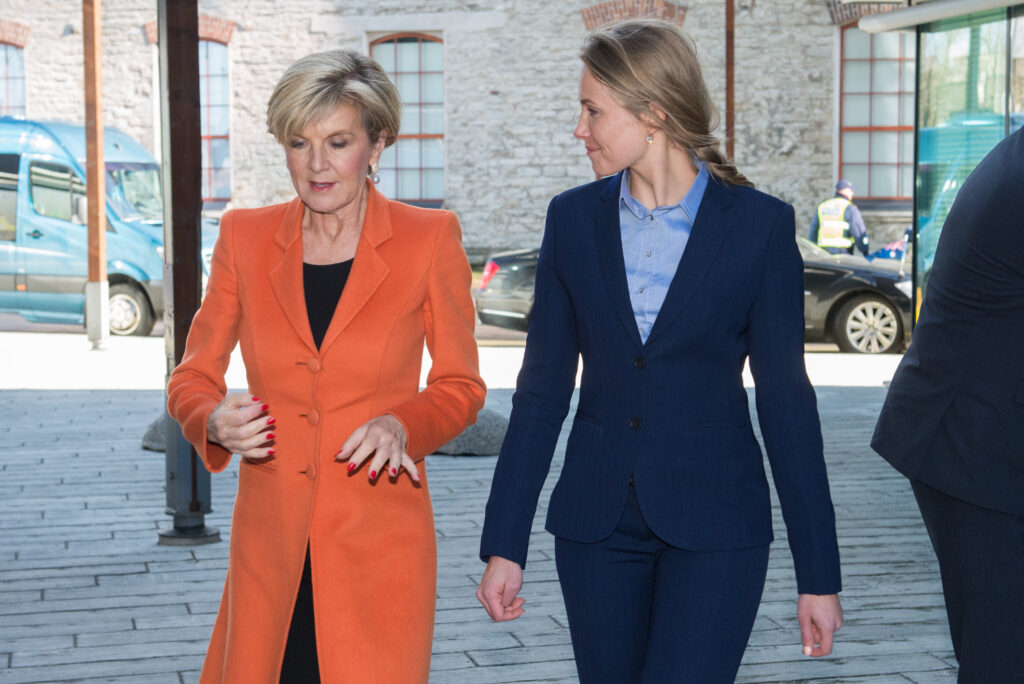
New visitors, be they politicians, entrepreneurs, academics or the media, would first undergo a briefing, followed by a real-time demo of services. There is also an exhibition, which includes screens, cars and gadgets that altogether make for memorable experiences, even for Piperal.
“This is the thing that has kept me going,” she acknowledges. “People’s reactions. After the pitch, which usually lasted about an hour, all the delegations were amazed by Estonia’s successes, and even developed countries admittedly had nothing similar to it.”
Life during COVID-19
In 2019, the e-Estonia Showroom was renamed the e-Estonia Briefing Centre and moved to a new location, where it hosted close to 12,000 visitors, with delegations from Germany and Japan leading the pack. Then the COVID-19 pandemic hit. For a centre based on serving travellers, the advent of the global health crisis has created some unique challenges.
“Before the coronavirus pandemic hit, our focus was on branding and export promotion of the companies,” Piperal says. “With the new travel restrictions, though, the centre had to reset all of our operations, so we didn’t have delegations, we didn’t have those 10,000-plus people a year visiting us, but we still had to maintain interest and an online presence toward companies and our solutions.”
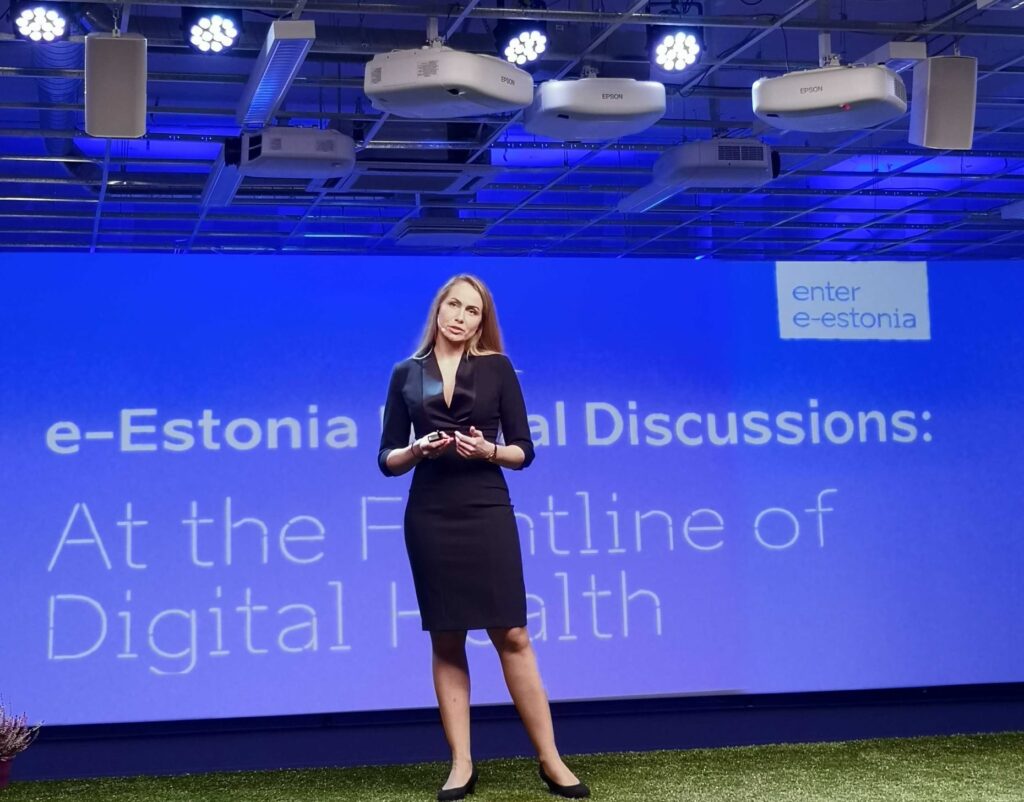
The solution was to create a new digital format for supplying briefings, organising conferences, such as a new series of e-Estonia digital discussions, as well as creating content that is focused on bringing attention to the ICT sector competence and services. The centre also rolled out targeted events, programmes and activities to introduce potential clients to Estonian firms, which has served as a funnel for new contacts.
Driving change forward
While its avenues for reaching people have changed with the new situation, the centre’s mission continues, stresses Piperal. And, surprisingly, it’s not just about buying new services or copying Estonia’s e-governance infrastructure. It’s about fomenting change and fostering innovative ideas.
“It is not actually the technology that blocks people in other countries from benefiting from the solutions we have in Estonia or building them themselves,” Piperal asserts. “It’s not an issue of IT; it’s an issue of mindset, and culture of driving change.” It also requires a level of commitment and political backbone that is not always available, even in some of the world’s older and larger democracies.
“It is a cultural change,” she says of what it takes for a country to raise its game. “There have to be leaders who will see these changes through and a long-term agenda to make things happen, no matter what party is in power.”
Cover: Anna Piperal at the Tallinn Digital Summit. Photos by e-Estonia.

